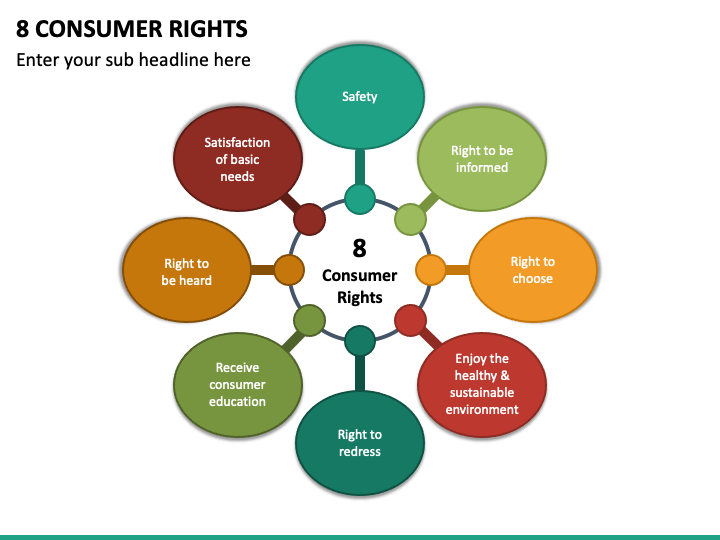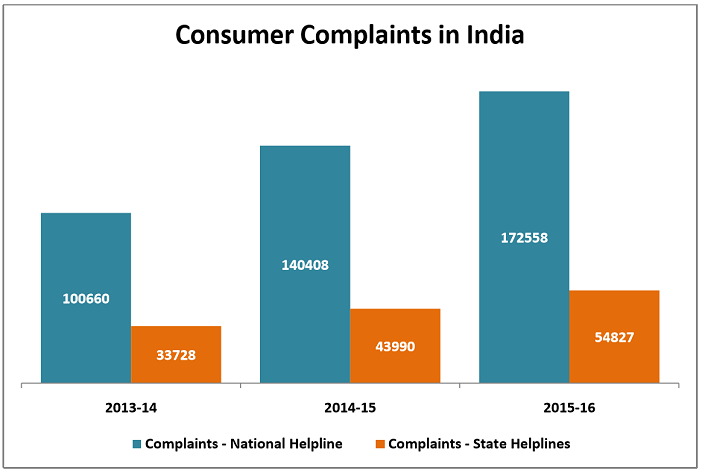Consumer rights
 Mohammed Aadeeb
Mohammed AadeebEmpowering Consumers: Your Rights and Obligations
A fair and transparent marketplace relies on consumer rights. They help to ensure that people are treated with dignity and fairness when dealing with businesses and service providers. However, despite their importance, many consumers do not know about their rights or how to enforce them when something goes awry. Today is World Consumer Rights Day (WCRD) — an annual date that is observed as a means of raising global awareness about consumer rights and needs, ensuring that consumers are aware of their fundamental rights, and encouraging businesses to operate ethically.
What Are Consumer Rights?
Consumer rights encompass a range of legal protections and ethical guidelines aimed at protecting consumers from exploitation, fraud, and unethical business practices. The idea of consumer rights was first articulated in 1962 by former US President John F. Kennedy, who outlined four basic consumer rights:
📌 Right to Safety — Protection against goods and services that are injurious to health or life.
📌 Right to Information – Access to accurate information in making the right decision.
📌 Right to Choice — Availability of a variety of goods or services at competitive prices.
📌 Right to Be Heard —Guarantee that consumer complaints and concerns will receive an appropriate response.

These rights gradually evolved to become:
✅ Right to Redress – Refund for misrepresentation, poor products, or unsatisfactory services.
✅ Right to Consumer Education – Access to programs that educate consumers to make informed choices.
✅ Right to a Healthy Environment – Freedom from environmental hazards and unsafe practices perpetrated by businesses.
These rights enable consumers to make more informed decisions, find protection against harm, and hold businesses accountable for their behaviour.
Why Consumer Rights Matter
Consumer laws do much more than protect people from harm; they also foster sound competition, marketplace fairness, and trust among businesses and customers.
🔎 Case Study:
In one case, the Indian Consumer Court in 2021 ruled in favor of a customer who received a defective refrigerator from a popular appliance brand. The company didn't hesitate to replace the product after many complaints. The court sent the company a popular clear signal on the matter and ordered it to return the full sum and also compensate the consumer for her mental distress. This added new pressures for the Right to Redress and showcased how consumer protection law enables average individuals to seek justice from businesses.
📊 Statistic:
In fact, some 43,000 consumer complaints were registered in 2023, says the Consumer Protection Authority of India; and nearly 68% of those complaints were resolved in the same year, indicating that existing consumer protection frameworks can be effective, too.

Common Violations of Consumers Rights
Despite protections under the law, consumer rights are routinely breached in everyday life:
❌ False Advertising — Vendors deceive consumers through overstated benefits of what they are selling.
❌ Hidden Fees – Unexpected charges that you were not made aware of upfront.
❌ Data Privacy Violations: Businesses misuse or don’t adequately secure sensitive consumer data.
❌ Hazardous Products – Manufacturers put out products without sufficient testing or safety precautions.
❌ No Right to Redress — Businesses refuse or postpone compensation for malfunctioning products or substandard service.
🔎 Example:
A popular Indian airline was publicly vilified in 2023 after it canceled more than 200 flights without offering refunds. Complaints from passengers prompted the Consumer Protection Authority to intervene, and the airline was ordered to compensate affected passengers.
How to protect your consumer rights
The first step to protecting your rights is being an informed consumer. Here’s how to enforce and protect your consumer rights:
Stay Informed
Do so before you buy any research products and services.
Be sure to read terms and conditions, especially regarding online transactions.
Familiarize yourself with product warranties and return policies

Report Violations
Report false advertising or fraud or unsafe products to consumer protection agencies.
Integrate online platforms and leverage the power of public opinion on social media to highlight exploitative behaviour.
Connect with consumer advocacy groups to amplify your collective voice.
Use Legal Recourse
Contact the Consumer Forum or Ombudsman if businesses do not take action.
Under consumer protection laws, the opportunity to get compensation for defective products or services.
Demand Transparency
Buy from brands and companies that practice ethical business.
Call for clear measures of ingredients, pricing and terms of service.
Consumer Responsibilities
Consumer rights shield people from being slightly exploited but also, in a way, come with responsibilities:
Be Honest and Ethical
Consumers are responsible for supplying accurate information with each purchase, return or complaint they file. Deceiving businesses or giving false data erodes the honesty of consumer rights
Read Before You Sign
Consumers should read and understand the terms, before signing a contract or terms of service. Many disputes are the result of consumers missing important information buried in fine print.
Support Ethical Businesses
Supporting businesses that promote best practices will lead to more positive behavior across the board. So supporting businesses that are sustainable, which encourages other companies to do the same.
Avoid Misuse of Rights
"Exercising consumer rights should not be used as a weapon against businesses to gain personal advantages from them. Cutting-edge systems for consumer protection can be compromised by false complaints or the solicitation of compensation for problems that do not exist.
Global Efforts time Strengthen Consumer Rights
One other area is the impact of global bodies such as the United Nations and WTO which are working to advance the cause of strengthening consumer protection regimes globally.
📌 The United Nations Guidelines for Consumer Protection (UNGCP) establish international benchmarks for consumer rights and guidelines for governments to adopt national policies.
📌 The Consumer Protection Act, 2019 broadened the scope of the product liability as well as deceptive advertisements in India and added regulations on e-commerce operators. The CCAS created provided consumers a specific authority through which they could address their complaints.

The Power of Awareness
If consumer rights awareness, consumers, make informed decisions, will hold businesses accountable. Consumer protection is more than a set of laws — it’s an instrument of social justice and economic equity.
📊 Statistic:
A 2022 study by Consumer International reported that 78% of the consumers are more likely to trust a brand that engages in ethical business practices and handles consumer complaints in an appropriate manner.
If you have data about a product why shouldnt you use it to build your own fair & transparent marketplace. Exercising your rights helps foster a culture of accountability, integrity, and business ethics.
Your rights count—be an informed, responsible consumer.
Subscribe to my newsletter
Read articles from Mohammed Aadeeb directly inside your inbox. Subscribe to the newsletter, and don't miss out.
Written by
